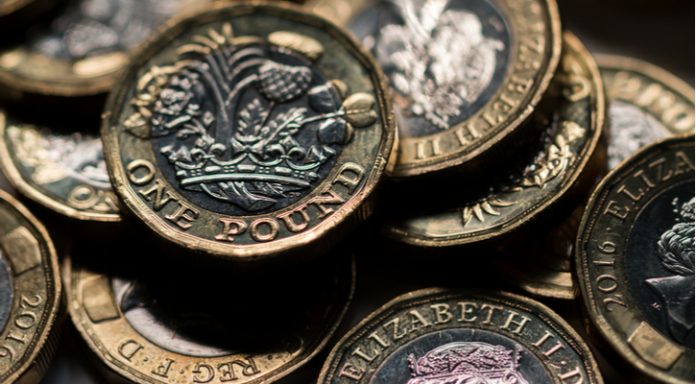- Pound (GBP) is falling after gains yesterday
- UK unemployment rose to 4.3%
- Euro (EUR) rises as German economic sentiment improves
- German inflation cooled to 2.2% in April
The Pound Euro (GBP/EUR) exchange rate is falling, giving back yesterday’s gains. The pair rose 0.1% in the previous session, settling on Monday at €1.1639 and trading in a range between €1.1616 and €1.1643. At 10:00 UTC, GBP/EUR trades -0.21% at €1.1615.
The pound is falling UK jobs data supported the view that the BoE could cut interest rates in the coming months.
Unemployment rose to 4.3%, its highest level since last summer, while wage growth excluding bonuses remained unchanged at 5.7%. Average earnings, including bonuses, came in at 5.9%, less than the 6% the Bank of England had forecast.
The figures suggest that the labour market is still heading in the right direction for the Bank of England to start cutting interest rates from the 16-year high, potentially as soon as June, as inflationary pressures continue to subside.
The markets still hold rate cut expectations at a 50% probability of a 25 basis point cut in June and are pricing into 25 basis point cuts by the end of the year.
Attention will be on UK inflation data next week, which they expected to show falling closer to the 2% target. This could be the deciding factor as to whether the Bank of England cuts rates next month or not.
The euro is rising, supported by signs of economic recovery in the eurozone’s largest economy. The closely watched Germans ZEW economic sentiment rose further for May, suggesting that the economic morale is set to brighten further.
Improving sentiment comes as interest rates are expected to be cut next month and amid signs of a recovery in China, one of Germany’s largest trading partners.
Meanwhile, German inflation confirmed the preliminary reading of cooling to 2.2% year on year in April, adding to evidence that the central bank will cut rates as it signaled in June.





